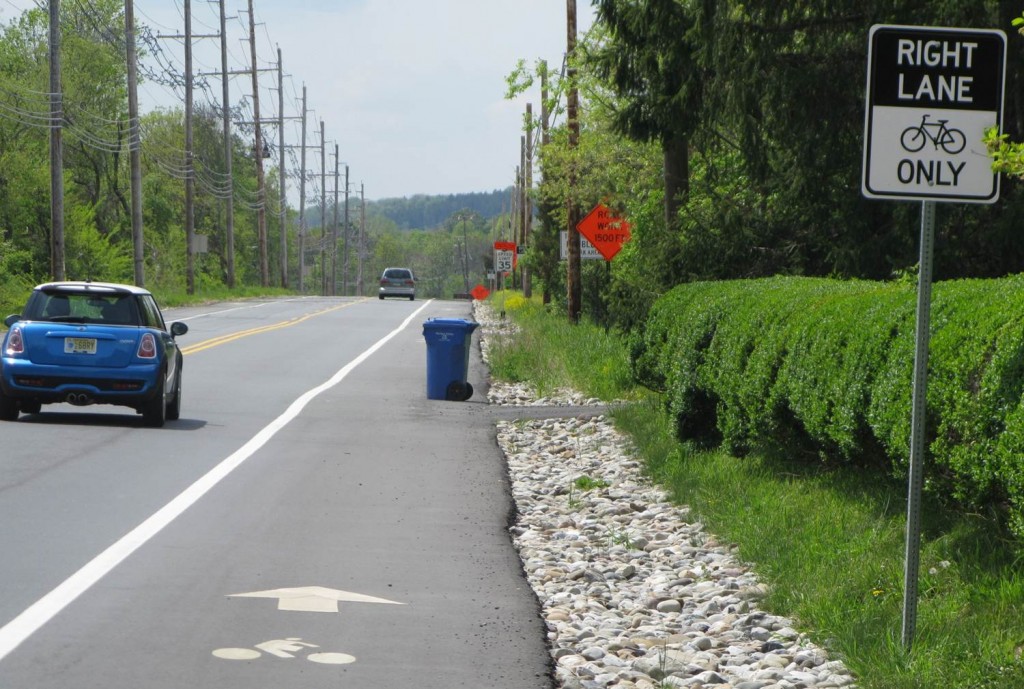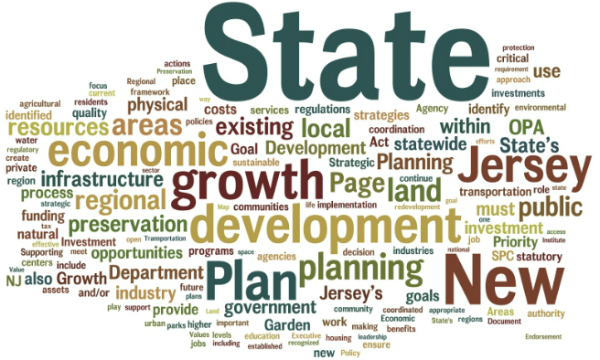New Jersey Future Blog
Fighting Climate Change Starts at Home
April 4th, 2008 by Chris Sturm
- On a per capita basis, in 2005 New Jersey residents emitted an estimated 16.7 metric tons of carbon dioxide from three principal sources: transportation (34 percent); residential, commercial and industrial fuel use (32 percent); and electricity consumption (24 percent).
- A key component in reducing greenhouse gas emissions involves driving less. According to the U.S. Environmental Protection Agency, each gallon of gas typically results in 19.4 pounds of carbon dioxide emissions. (To explore how your household can reduce its carbon footprint, use the EPA’s Personal Emissions Calculator: www.nj.gov/globalwarming.)
- Residents of compact, mixed-use communities—where it is safe and convenient to walk, bike, carpool and accomplish errands with short driving trips—typically drive 20 to 40 percent less, according the Urban Land Institute’s “Growing Cooler” report.
- The “Growing Cooler” report concludes that compact growth can, by itself, reduce total transportation-related CO2 emissions by up to 10 percent by 2050—an essential contribution if New Jersey is to reach its CO2 emissions-reduction goal of 80 percent by 2050.
New Grants Will Help Municipalities Join the Fight
Fighting climate change demands rethinking how we generate energy and how efficiently we use it. The most immediate savings will come from simple energy conservation measures, such as using compact fluorescent light bulbs, energy-efficient appliances and hybrid cars. Bigger investments include building renovations, such as better insulation and solar panels. But in the longer term, we must, simply put, drive less—behavior that is most common among residents of compact, mixed-use communities that support walking, biking and transit use.
Under current zoning, most New Jersey municipalities prohibit the kind of compact, mixed-use development that encourages alternatives to automobile use. Yet research on best practices in other states, including Massachusetts and Connecticut, has shown that modest state incentives, starting with planning grants, can effect meaningful change. Given the incentive to do so, municipalities will amend their zoning to allow well-designed, high-density housing and mixed-use development with affordable units in appropriate locations, ideally near transit.
New Jersey Future’s task force on Smart Housing for Economic Prosperity is exploring how such a program could work in New Jersey. It is clear that planning grants are an essential component, giving municipalities the resources they need to explore how to locate and design compact growth. Fortunately, the state will soon have a source of revenue to support such grants.
The carbon cap-and-trade law passed by the Legislature in January directs an estimated $40 million to $70 million in annual proceeds from the sale of carbon credits into the “Global Warming Response Fund.” This fund is divided into four components:
- 10 percent will go to the Department of Environmental Protection to help local governments with measures such as land-use planning, energy efficiency and renewable energy;
- 10 percent will be used by the DEP to enhance the stewardship and restoration of the state’s forests and tidal marshes;
- 60 percent will be allocated to assist commercial, institutional and industrial entities with end-use energy efficiency projects; and
- 20 percent will be used to help low- and moderate-income electricity users.
The DEP should use its share of this fund both to jumpstart short-term energy-efficiency measures and to invest in the long-term agenda of transforming our communities to enable more people to walk, bike and use transit, rather than drive alone. This should start with grants to support local land-use planning for compact communities that meet measurable benchmarks for location, density and design. This effort, accompanied by improvements to the transit system and bike and pedestrian facilities, will allow New Jerseyans to shrink their carbon footprints and improve their quality of life.
If you have any questions about this issue of Future Facts, please contact Senior Director of State Policy Chris Sturm or Senior Communications Consultant Rick Sinding.
















